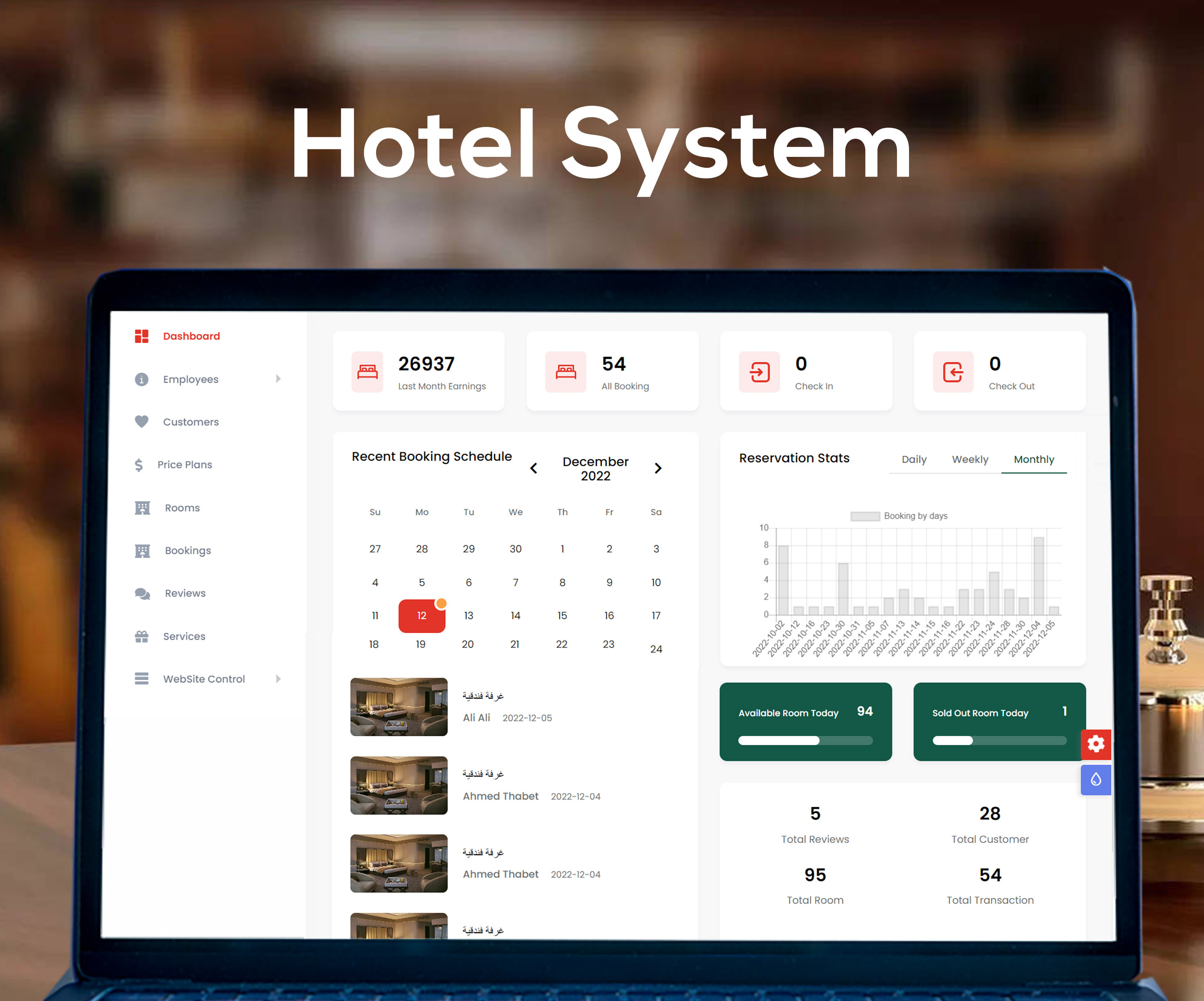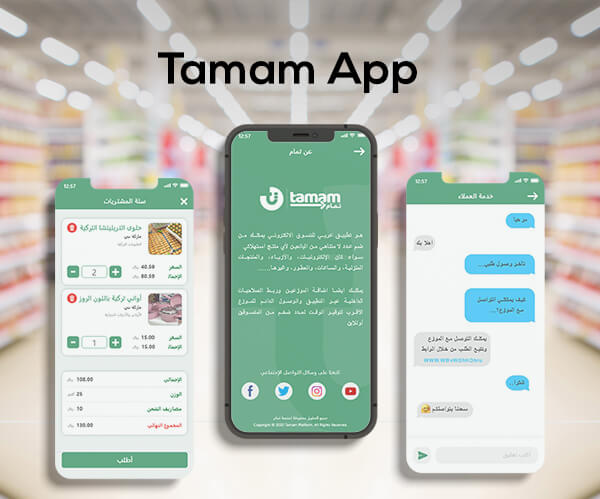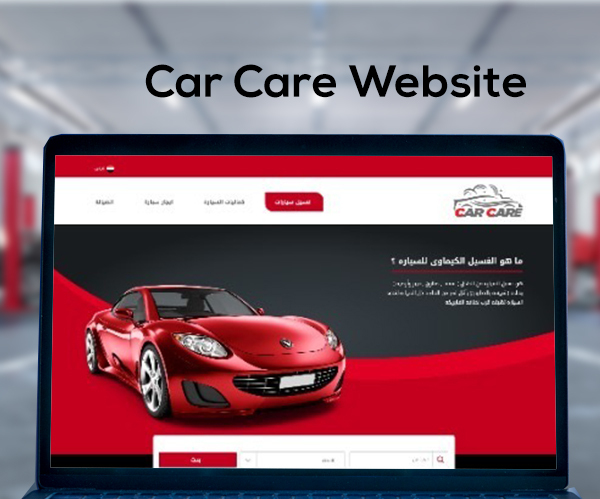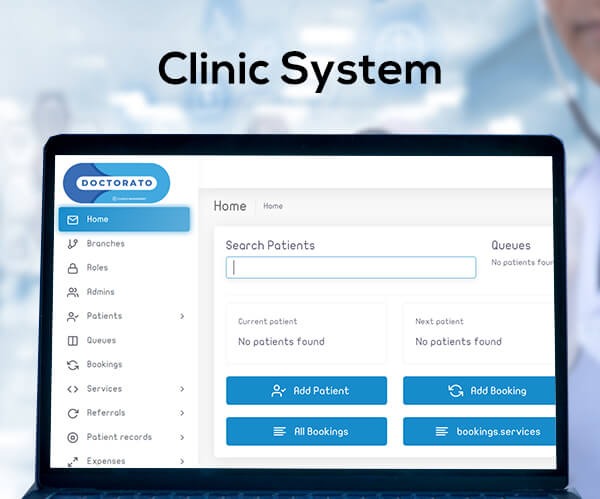Saudi Arabia is rapidly becoming into a one-stop location for the creation of mobile applications and is seeing explosive market expansion in this area. It is a devotional centre and has developed as a business hub with a number of businesses that concentrate on digital tech solutions.
Modern technologies, like AI, IoT, cloud computing, and many others, are crucial to the digital transformation of KSA's largest companies. In Saudi Arabia, mobile apps assist businesses in expanding their target markets and growing in any area.
A lot of companies in Saudi Arabia also provide web and app development services, as well as digital marketing services. In Saudi Arabia, the most downloaded apps include Sehhaty, Instagram, Telegram, Kwai - Short Video Community, Makeover Race, Candy Challenge 3D, and Snapchat..and more.
Mobile networks have been critical in providing the reliable connectivity required to sustain social and economic activities since the emergence of Covid-19. As countries work to contain the pandemic, governments in the Middle East and North Africa (MENA) and elsewhere must prioritise economic recovery and sustainable development. By stimulating economic growth and mobilising resources, digital services and technologies will be critical to achieving this goal.
Other than the COVID-19 pandemic, Saudi Arabia has the third-highest smartphone penetration rate in the world, with around 21 million users (80.7% of the population used a smartphone in 2019), and that number is expected to rise by about 24 million by 2024.
The Kingdom of Saudi Arabia has also been identified by the World Bank as one of the world's wealthiest nations in terms of purchasing power. Grand View Research estimates the global mobile app market to be worth more than $170 billion, with a compound annual growth rate (CAGR) of 11.5 percent expected between 2021 and 2025.
What Are The Recommended Mobile App Strategies for Saudi Businesses
Mobile app strategy is the process of understanding how a mobile app will solve customers' pain points, integrate into a business, and become a valuable digital asset to generate ROI and help run a successful online business.
The increasing popularity and use of mobile-based interactions is altering how consumers engage and transact throughout the customer journey. The relatively 'young' middle eastern population, including Saudis, is putting pressure on businesses to improve mobile experiences in order to meet their specific needs.
The Saudi market for mobile applications is extremely competitive. Google Maps, Absher, Hunger Station, WhatsApp, Uber, Careem, Noon Shopping Twitter, and YouTube are the most popular apps in the country.
In the presence of successful mobile apps in Saudi Arabia, developing a new mobile application is difficult because it necessitates a digital-first approach and new technologies. It also necessitates understanding of key mobile trends as well as an effective digital marketing strategy to drive positive business outcomes.
The number of people using wearables, tablets, and smartphones to access information is growing over time. Every consumer nowadays prefers a mobile app for online shopping, data storage and management, socialising, and navigation. Many businesses in Saudi Arabia are developing mobile apps to attract potential customers and increase competition in the global market.
If you are planning to create a fully customised mobile app for your company, you should be aware that your application should be unique enough to satisfy the special needs of your audience.
Understanding the Differences Between Native, Hybrid, and Web Apps
You're excited to bring digital transformation to your industry with a newly developed mobile app, but do you understand the distinctions between the three most common types of apps: native, hybrid, and web? If not, you should first understand their comparisons because they differ and serve different functions.
The following are three different types of mobile apps:
• Native apps:
Native apps are designed for one platform or operating system. Whether for Google's Android, Apple's iOS, or Windows Phone, it help to improve user experiences and make the platform run faster.
Native apps are created using the most popular programming languages. Swift, Kotlin,Objective C, and Java.
Advantages: Native apps are more dependable and faster in terms of performance. Native apps use device resources more efficiently than other types of mobile apps and use the native device UI to provide users with a more optimised experience due to their single focus. Similarly, native apps are simple to connect with the hardware of the device and are ideal for accessing various device features such as the camera roll and phonebook.contacts, Bluetooth, NFC, etc.
Drawbacks: Native apps require more time and money to develop because the code you write for one platform cannot be reused on another. In addition, if the app receives a new update that takes up a lot of storage space on the device, the user must download the new file and reinstall it.
--
Web apps:
Web apps can run on any operating system or mobile device because they are responsive versions of websites that are accessed via a web browser on your mobile device.
Web apps are created using technologies such as HTML5, CSS, Ruby, JavaScript, and other programming languages commonly used for websites.
Advantages: It does not require additional development costs because it is entirely web-based and does not necessitate the customization of an operating system or a platform. Furthermore, they take up less space than native apps and require no download, making web app maintenance simpler.
Drawbacks: Because web apps are browser-dependent and used on the device, functionalities that are available on one browser but not another may provide different customer experiences. It is also necessary to have a strong internet connection in order to perform the data backup on your device.
--
Hybrid apps:
Hybrid apps are web apps that have the same look and feel as native apps. Although they have a responsive design, a home screen app icon, and fast performance, they are not as dependable as native apps.
Hybrid apps use programming languages such as Objective-C, Swift, HTML5, and a combination of web technologies and native APIs.
Advantages: Developing a hybrid app is less expensive and faster than developing a native app. In countries with slow internet connections, hybrid apps are simple to load and use. These apps use a single code and provide users with a consistent experience.
If you need a solid mobile app strategy to build mobile apps in Saudi Arabia, you must decide whether you need native apps, web apps, or hybrid apps because the cost of creating these apps varies depending on the experience, resources, and actual time required by a developer for mobile app development.
Must-Know Strategies for Mobile App Development
Here are some mobile app development strategies to consider:
Define a Specific Role
Make certain that the mobile app has a clear purpose. The app should be responsive in order to assist users in purchasing your products or services and finding product information from their mobile device.
It should be capable of problem-solving and assisting customers in managing their accounts by paying bills and checking bank balances from their mobile device.
In many ways, mobile apps help obtain necessary information such as the location of a restaurant, traffic updates, and even entertain. By defining the role of your mobile application, you can ensure that your mobile app strategy is focused on meeting the needs of your customers.
Understand the Importance of Foundation
The advantage of developing a mobile app on a single platform is that you can integrate new services and features to meet changing demands.
Android is the most popular platform, with nearly 20 million smartphone users in Saudi Arabia and the Middle East and Africa region. In comparison, Apple devices such as the iPad and iPhone are used by 23% of smartphone owners.
If you want to achieve high quality, you should build your app on a single platform because it reduces the time required to launch the product into the market and provides quality assurance to propel your business forward.
Mention the Data that will be accessible through the Mobile App
It is critical to decide which data you want to make available to your app's users. Also, avoid cramming too much functionality and data into one app, as this adds complexity and makes it difficult for users to navigate and understand. Your users prefer an app that is simple and easy to use.
Design the Data Security Protocol
Security is one of the most important aspects of any app, and it must be taken into account when developing a mobile application strategy. The risks of data breaches and the frequency of cyber attacks have increased as digital transformation has accelerated.
This increases the Kingdom's need to consider a secure environment for data and digital operations. There must be a strong security system in place to ensure that your users' and company's data are safe in the application. If your mobile app's security is inadequate, it will almost certainly fail in the future because customers dislike apps that frequently leak data.
Focus on the Financial Model
Make a financial model a part of your mobile app strategy. A free app that helps you gain more customers should be available because it can help you increase loyalty and revenue.
Apps such as Survival Game: Squid Challenge, Telegram, Makeover Race, and many others that we have discussed as the most popular apps in Saudi Arabia are free and help drive high-volume instals.
If the app provides valuable services to users, chances are they will stay on your app for a longer period of time, allowing you to offer them a free app with advertisements to generate revenue for your business.
Don’t Forget the Mobile App’s Performance
With advanced technologies and the consistent release of mobile devices, it is more important than ever to focus on mobile optimisation to ensure your mobile application is friendly, responsive, and fast in terms of performance.
Customers despise apps that are slow and frequently crash. They may leave a negative review on Google and other online reputation management sites in order to harm your market reputation.
Mobile app crashes cause a variety of issues, including data leakage and user data loss. To avoid such situations, you should hire a reputable mobile app development company that is knowledgeable and experienced in building mobile apps networks and memory management, error detection, adequate testing, and other factors that are required when developing a mobile application strategy.
Leverage Cloud Technology
There are numerous advantages to developing mobile apps in the cloud, including cost-effectiveness, agility, standardisation, flexibility, and so on. Companies that hire cloud-savvy developers can reap the same benefits because they have cloud-based development tools that allow them to create apps from anywhere.
The best part is that these cloud-based tools do not require installation or maintenance of the infrastructure. Many business and consumer applications, such as CRM (Customer Relationship Management), Google Docs, Office 365, and Microsoft Azure, are now cloud-based. The benefits of leveraging cloud technology include a smooth learning curve and a faster on-boarding process for new users.
Analyse What Will Allow Users to Visit Your Mobile App
Consider your mobile app from the perspective of the customer, as this is the most important factor in achieving success in the age of digital transformation.
Customers should have compelling reasons to use your app. As a result, it is always advised to develop a distinct mobile application strategy that will aid in the development of a useful app to provide services. You can even use such apps to attract potential customers and encourage them to use your solution on a daily basis.
Creating a Roadmap for Your Mobile App
Here are some pointers and ideas to consider when developing a roadmap for your mobile app:
-
Know Your Users and Solve Their Problems in Real-Time
You must understand who your customer is. Because, in order to develop and launch a mobile app to solve an existing problem or innovate a new service that your customers will use, you must first understand the challenges they face in their daily lives or businesses.
For example, if you want to create an Uber clone, you must have a solid mobile application strategy in place to ensure that your users can hire a taxi in the most convenient and cost-effective way possible. Similarly, your business needs will be met at a low cost.
-
Identify Your App Competitors
After you've spent time identifying app users, the next step is to conduct extensive research on your competitors, because they've already published their apps on Google Play and Apple App Store. You can learn about their app's features and strengths using this concept.
You can use Google or another search engine to help you with this. You can even look for your competitors by utilising some keywords, which are words and phrases that your customers may use in the question form to satisfy their intent and obtain accurate results.
Don't be concerned if there are many competitors. Believe me when I say that the fittest will survive, and there will be enough room for everyone who is fit.
-
Establish the Application Objectives or Goals
A plan without a goal is just a fantasy. Always have objectives for your mobile application if you want to succeed in your mission. Furthermore, these objectives should be specific and appropriate for achieving specific results for your customers, business, or product.
It aids in making sound decisions and provides positive outcomes for employees, stakeholders, and investors. You must have the answers to the following questions in order to create the app's goal.
- What pain points or issues will your application address?
- Why is your app important to your users?
- How will your application's features and content differ from those of your website?
- How frequently do you intend to add new content or update the app?
- Will this project necessitate the use of specialists, collaboration with other departments, or the involvement of community partners in order to meet the needs of your target audience?
- Why should users download your app?
- Why should your users return to your app and recommend it to their friends and family?
- What distinguishes your app as distinct and customer-specific in comparison to similar apps on the market?
- What mobile version will you use, and how will it differ from previous versions?
- How do you prepare for risk?
- How do you intend to keep track of app uninstalls?
-
Select the Right Mobile Platform for Your App
Getting the application ready from the developer is simple, but making it a success is difficult. If your app does not support the operating system that your users use, it may be downloaded by the fewest people.
As a result, you will be unable to generate the profit or income that you anticipated during development. To be successful in today's mobile platform market, you must select the right operating system because it aids in the management of the device's hardware and software functions or serves as an interface between the hardware (end-user device) and the software (application).
According to Statista, Android has surpassed iOS as the most popular mobile operating system worldwide, accounting for nearly 73% of the mobile OS market. Google-based Android and Apple's iOS have a global market share of 99 percent, which means that developing an app for either the Android or iOS operating systems can be an excellent choice for your app.
Hiring a professional mobile app strategist is critical because it has a team of mobile app developers who are well-versed in Agile methodologies and the top mobile app development frameworks used in Saudi Arabia. For example, React Native, Xamarin, Mobile Angular UI, Native Scripts, Flutter, Corona, Adobe Phonegap, JQuery Mobile, and others can be used to develop customer-oriented mobile apps and successfully launch a product to market.
You must create a solid strategy from the best mobile app development planner before developing a mobile app because it ensures that your application will launch as intended, meet your unique company's goals and objectives, and help you produce a true ROI.
Do you intend to create a result-oriented mobile application development strategy for your EdTech companies? You should work with Alef Software because we specialise in digital transformation and have a decade of experience developing an effective mobile application strategy for your native, hybrid, and web apps. Together, we can create a roadmap for your mobile app development. We guarantee that you will receive a user-friendly application that will meet your specific requirements.












